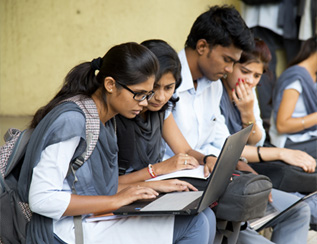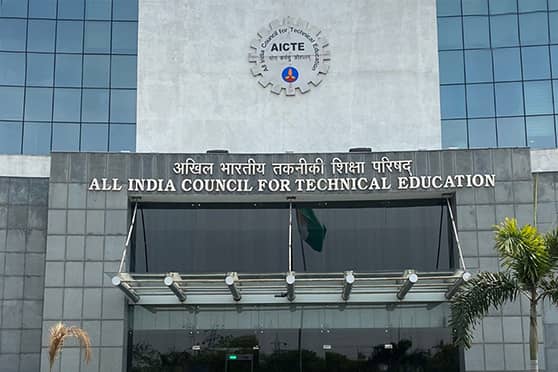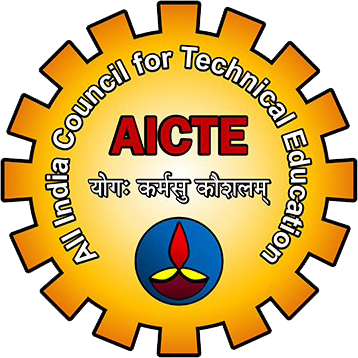भारत में तकनीकी शिक्षा समग्र शिक्षा प्रणाली में एक बड़ा योगदान देती है और हमारे देश के सामाजिक और आर्थिक विकास में महत्वपूर्ण भूमिका निभाती है।


संगठन
एआईसीटीई अधिनियम (1987) के प्रावधानों के अनुसार, 1988 में इसकी स्थापना के बाद पहले पांच वर्षों के लिए, भारत सरकार के मानव संसाधन विकास मंत्री, परिषद के अध्यक्ष थे। पहला पूर्णकालिक अध्यक्ष 2 जुलाई, 1993 को नियुक्त किया गया था और मार्च 1994 में तीन साल की अवधि के साथ परिषद का पुनर्गठन किया गया था। 7 जुलाई, 1994 को कार्यकारी समिति का पुनर्गठन किया गया और 1994-95 में अखिल भारतीय अध्ययन बोर्ड और सलाहकार बोर्ड का गठन किया गया। भारत सरकार के मानव संसाधन विकास मंत्रालय के कोलकाता, चेन्नई, कानपुर और मुंबई स्थित क्षेत्रीय कार्यालयों को एआईसीटीई में स्थानांतरित कर दिया गया और इन कार्यालयों में काम करने वाले कर्मचारियों को भी विदेशी सेवा शर्तों पर परिषद में प्रतिनियुक्त किया गया। 1 अक्टूबर, 1995. ये कार्यालय चार क्षेत्रों (उत्तर, पूर्व, पश्चिम और दक्षिण) में क्षेत्रीय समितियों के सचिवालय के रूप में कार्य करते थे। 27 जुलाई, 1994 को दक्षिण-पश्चिम, मध्य और उत्तर-पश्चिम क्षेत्रों में तीन नई क्षेत्रीय समितियाँ भी स्थापित की गईं, जिनके सचिवालय क्रमशः बैंगलोर, भोपाल और चंडीगढ़ में स्थित हैं। दक्षिण-मध्य क्षेत्र में एक और क्षेत्रीय समिति, जिसका सचिवालय हैदराबाद में है। 8 मार्च 2007 को अधिसूचित किया गया।
Our Objectives
- Promotion of Quality in Technical Education.
- Planning and Coordinated Development of Technical Education System.
- Regulations and Maintenance of Norms and Standards.


Our Vision
“To be a world-class organization leading technological and socio-economic development of the country by enhancing the global competitiveness of technical manpower and by ensuring high quality technical education to all sections of the society.”

Our Mission

- A true facilitator and an objective regulator.
- Transparent governance and accountable approach towards the society.
- Planned and coordinated development of Technical Education in the country by ensuring world-class standards of institutions through accreditation.
- Emphasis on developing high quality institutions, academic excellence, and innovative research and development programmes.
- Networking with/ or a network of institutions for optimum resource utilization.
- Dissemination of knowledge.
- Technology forecasting and global manpower planning.
- Promoting industry-institution interaction for developing new products, services, and patents.
- Inculcating entrepreneurship.
- Encouraging indigenous technology.
- Focusing on non-formal education.
- Providing affordable education to all.
- Making Technical Education in India globally acceptable.



